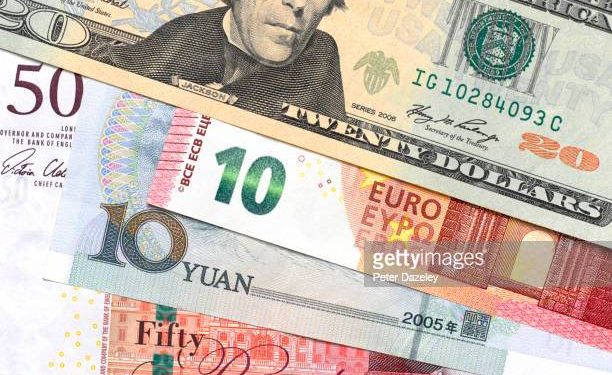The Nigerian naira has recorded notable gains against the euro in the parallel market, trading at N1,690/€, compared to N1,852/€ just a week earlier. This significant appreciation reflects the impact of recent reforms in Nigeria’s foreign exchange market and ongoing political uncertainty in Europe.
The naira’s recent performance follows the Central Bank of Nigeria’s (CBN) introduction of the Electronic Foreign Exchange Matching System (EFEMS), designed to address inefficiencies and opacity in the forex market. The EFEMS platform has facilitated seamless transactions among participants and provided regulators with real-time market visibility, significantly enhancing market transparency.
According to Omolara Duke, the CBN’s Director of Financial Markets, EFEMS represents a revolutionary step in Nigeria’s forex management: “The Bloomberg BMatch platform is a game-changer for the foreign exchange market.”
Euro Pressured by French Political Crisis
The euro’s performance has been undermined by escalating political tensions in France, which have contributed to its downward trajectory. At the global level, the euro has neared the critical $1.05 mark against the US dollar, having declined over 3% last month.
The political crisis revolves around a controversial budget proposal by French Prime Minister Michel Barnier, which aimed to address France’s growing fiscal deficit through tax hikes and spending cuts. The plan, seen as deeply unpopular, resulted in a no-confidence vote that led to Barnier’s dismissal.
Barnier’s gamble—pushing the budget through without parliamentary approval—failed to secure the support of key political figures, further destabilizing the country’s political environment. Additionally, global factors such as the threat of US tariffs on European exports, particularly in the auto sector, and anticipated interest rate cuts by the European Central Bank (ECB) continue to weigh on the euro.
Forex Reforms and Market Dynamics in Nigeria
The naira’s appreciation is seen as a positive response to Nigeria’s forex reforms. EFEMS allows commercial banks and authorized dealers to place real-time buy and sell orders, ensuring quicker transaction execution and improved transparency. These reforms align with the CBN’s broader goal of creating a more efficient and well-regulated foreign exchange market.
The reforms have also resulted in a significant drop in speculative activities, with increased dollar liquidity and subdued demand in the market contributing to the naira’s recent gains.
Euro Outlook Remains Uncertain
Despite recent challenges, historical trends suggest that December often favors the euro against major currencies. Over the past 24 years, the euro has gained an average of 1.6% against the US dollar in December, with a 71% chance of ending the month positively.
However, much will depend on the upcoming ECB meeting, where decisions regarding interest rate cuts—either 50 or 25 basis points—are expected. While lower rates are aimed at stimulating the EU’s struggling economy, their effectiveness depends on each member nation’s fiscal capacity.
Bottom Line
The naira’s strength against the euro signals the effectiveness of Nigeria’s recent forex reforms in stabilizing the local currency. Meanwhile, Europe’s single currency faces ongoing challenges from political instability and global economic pressures. The trajectory of both currencies will depend on policy decisions and market dynamics in the coming weeks.









